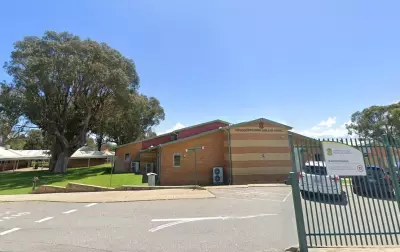
Australia stands at a critical crossroads where conventional thinking and outdated systems no longer serve our national interests, according to leadership expert Lanna Hill. The country requires a substantial dose of courage to construct a future that nobody anticipated.
The Courage Deficit in Australian Society
Lanna Hill, an experienced leadership coach and commentator, identifies a significant courage gap preventing Australia from reaching its potential. Our education systems and workforce preparation methods remain anchored in twentieth-century models that fail to address contemporary challenges.
Hill observes that Australians have become increasingly cautious, prioritizing security over innovation. This risk-averse mentality manifests across multiple sectors, from corporate boardrooms to policy decisions. The comfortable predictability of established patterns has created institutional inertia that stifles progress.
"We're educating people for jobs that won't exist in the same form," Hill warns, highlighting the disconnect between current training and future requirements. The rapid acceleration of technological change demands a fundamental rethinking of how we prepare Australians for coming decades.
Transforming Education for Unknown Challenges
The most pressing area requiring courageous reform is Australia's education system. Hill emphasizes that we must shift from teaching specific skills to developing adaptable thinkers capable of navigating unpredictable professional landscapes.
Traditional educational pathways have focused on preparing students for known professions with established career trajectories. This approach becomes increasingly inadequate as automation and artificial intelligence transform workplaces. Instead, Hill advocates for educational models that prioritize creativity, critical thinking, and emotional intelligence.
The future workforce will require continuous learning and adaptation throughout careers, not just during initial education periods. This represents a dramatic departure from current systems that front-load education early in life. Hill suggests Australia must develop more flexible learning opportunities accessible at all career stages.
Building Resilience Through Courageous Leadership
Courageous leadership represents another essential component for Australia's successful future. Hill identifies that true leadership involves making difficult decisions without guaranteed outcomes, a quality often lacking in contemporary Australian institutions.
Political and corporate leaders frequently prioritize short-term popularity over long-term vision, creating policy instability and inhibiting meaningful progress. Hill argues that courageous leadership requires transparency about challenges while maintaining optimism about solutions.
The transition toward a more resilient Australia demands leaders who can articulate a compelling vision while acknowledging the discomfort of change. This involves honest conversations about necessary sacrifices and structural adjustments across economic and social systems.
Hill concludes that Australia possesses all the necessary ingredients for extraordinary success—resources, talent, and geographic advantages. The missing element remains the collective courage to embrace uncertainty and build a future that differs radically from our past. Without this courageous transformation, Australia risks falling behind more adaptable nations in the global landscape.





